Photo: Monica Schipper/Getty Images for The Recording Academy
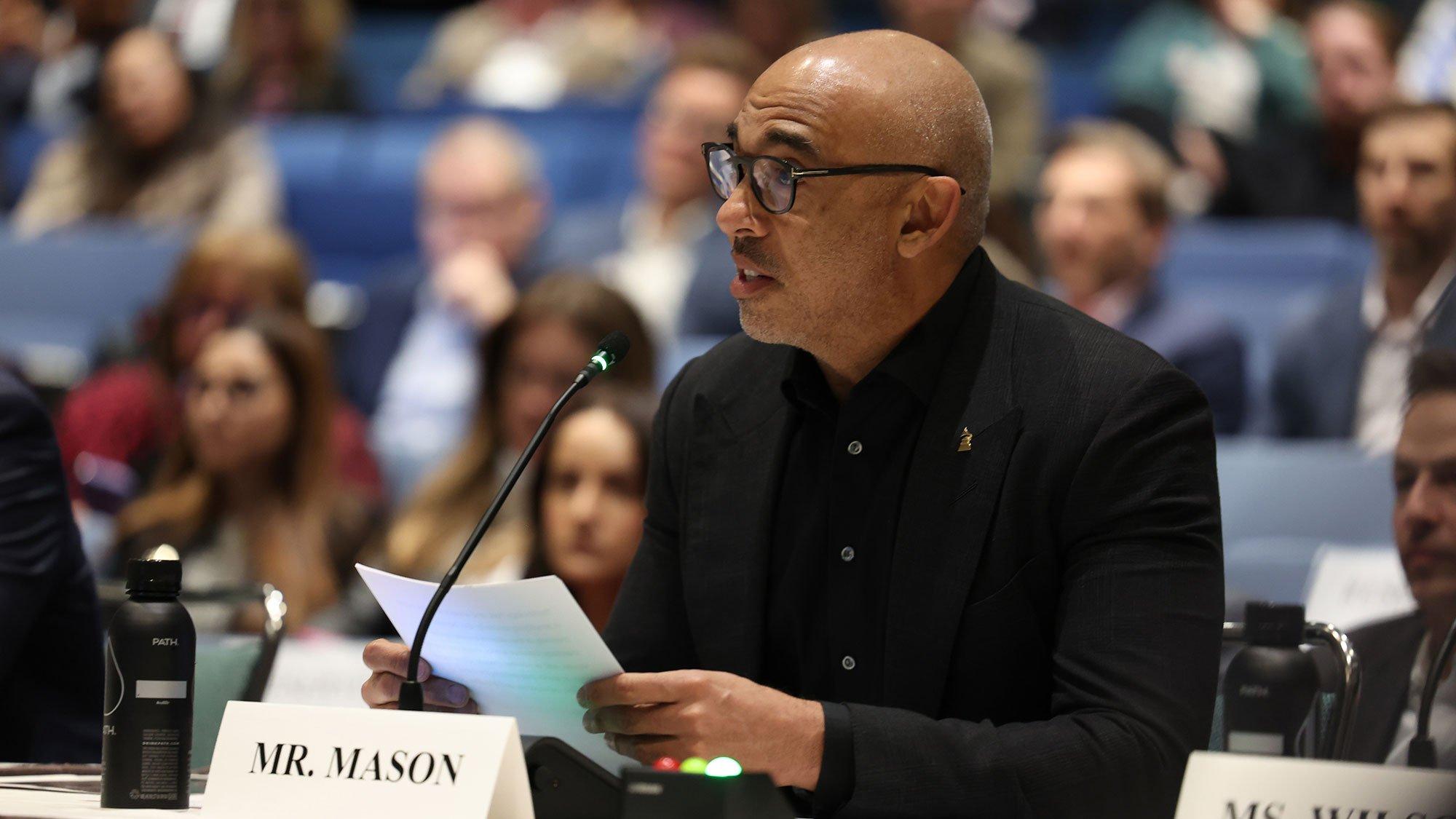
news
How The Recording Academy Tackled The Evolving Landscape Of Music & AI During GRAMMY Week 2024
During a House Judiciary Committee hearing on artificial intelligence, Recording Academy CEO Harvey Mason jr. addressed the potential benefits and challenges of rapidly developing AI technologies and their impact on the music industry.
Last week, Recording Academy CEO Harvey Mason jr. served as one of four witnesses at the House Judiciary Committee's Subcommittee of Intellectual Property's Field Hearing on "Artificial Intelligence and Intellectual Property: Part II – Identity in the Age of AI." During his time in front of the subcommittee, held at the Los Angeles Convention Center on Friday, Feb. 2, during GRAMMY Week 2024, Mason jr. illuminated on the dual nature of artificial intelligence (AI), highlighting its potential for innovation alongside the accompanying challenges and uncertainties.
"The Recording Academy is in the business of celebrating human excellence and human creativity," Mason jr. shared in his opening testimony. "That was the biggest concern when we crafted our GRAMMY Award policies. We understand that AI is a part of our industry and here to stay, but our awards guidelines stay true to our mission to honor the people behind the music we love so much. Only human creators are eligible to be submitted for consideration for, nominated for, or win a GRAMMY Award."
Additionally, joining Mason jr. were University of Pennsylvania Law Professor Jennifer Rothman, SIIA President Christopher Mohr, and singer/songwriter Lainey Wilson, the latter of whom just won the GRAMMY for Best Country Album at the 2024 GRAMMYs, officially known as the 66th GRAMMY Awards.
"I use my music and my voice to tell stories, to connect to my fans, and to help them connect with each other," Wilson proclaimed. "There aren't many things we can control in life, but making decisions about the use of our own selves, our own unique qualities — that should be one."
In their testimony, Mason jr. and Wilson both spotlighted the No AI FRAUD Act, which is supported by many committee members.
"The bill establishes in federal law that an individual has a personal property right in the use of their image and voice. That's just common sense, and it is long overdue. The bill also empowers individuals to enforce this right against those who facilitate, create, and spread AI frauds without their permission," Mason jr. highlighted.
Reps. Maria Salazar (R-FL), Madeline Dean (D-PA), Nathaniel Moran (R-TX), Rob Wittman (R-VA), and Joe Morelle (D-NY) introduced the No AI FRAUD Act (H.R. 6943) last month. In support of the bill, the Academy worked closely with the global Human Artistry CampAIgn to garner signatures from more than 280 artists, actors and performers, including 21 Savage, Cardi B, Mary J. Blige, Vince Gill, and Smokey Robinson.
Wilson, who also signed on to the campaign, echoed Mason jr.'s support. "AI increasingly affects every single one of us," she said. "We need artists to keep telling stories and connecting with fans and bringing people together authentically. We need to keep humanity in art — we cannot lose that. The No AI FRAUD Act is a great place to start."
Mason jr.'s remarks underscored the importance of respecting an artist's agency when it comes to the evolving landscape of AI. He understands that AI is "here to stay" and that because of this, artists must navigate the intersection of technology and artistic expression. The Recording Academy wants to help artists through this navigation.
"For us, it really comes down to choice," Mason jr. expressed during questioning. "If an artist would like to participate in creating music through AI or allow others to utilize their voice, we believe there should be a choice, and some will want to do that. And as Lainey said, some would rather not. As long as they're credited properly and they have certain approval rights, and there's a way for them to be paid fairly, we see that as a possibility."
Mason jr. also spoke on his vision for the future of generative AI in music.
"My hopes are that we can use it as a tool to amplify human creativity. My hopes around AI is that we can find some guidelines around it for creators that are always early adopters of technology to use it to benefit them and to bring more great creativity, more works of art to the fans and to the world."
Taking a stand against AI fraud within the music industry is not an easy battle, but the Recording Academy is at the forefront of this fight and will continue work to preserve and honor human creativity in the face of advancing AI technologies. To join the Academy in this important fight, send a message to your lawmakers in support of the No AI FRAUD Act via the Academy's action center. Your support can make a difference in preserving the integrity of music and empowering artists in the digital age.
House & Senate Take Critical Steps Toward Ticketing Reform: Learn How
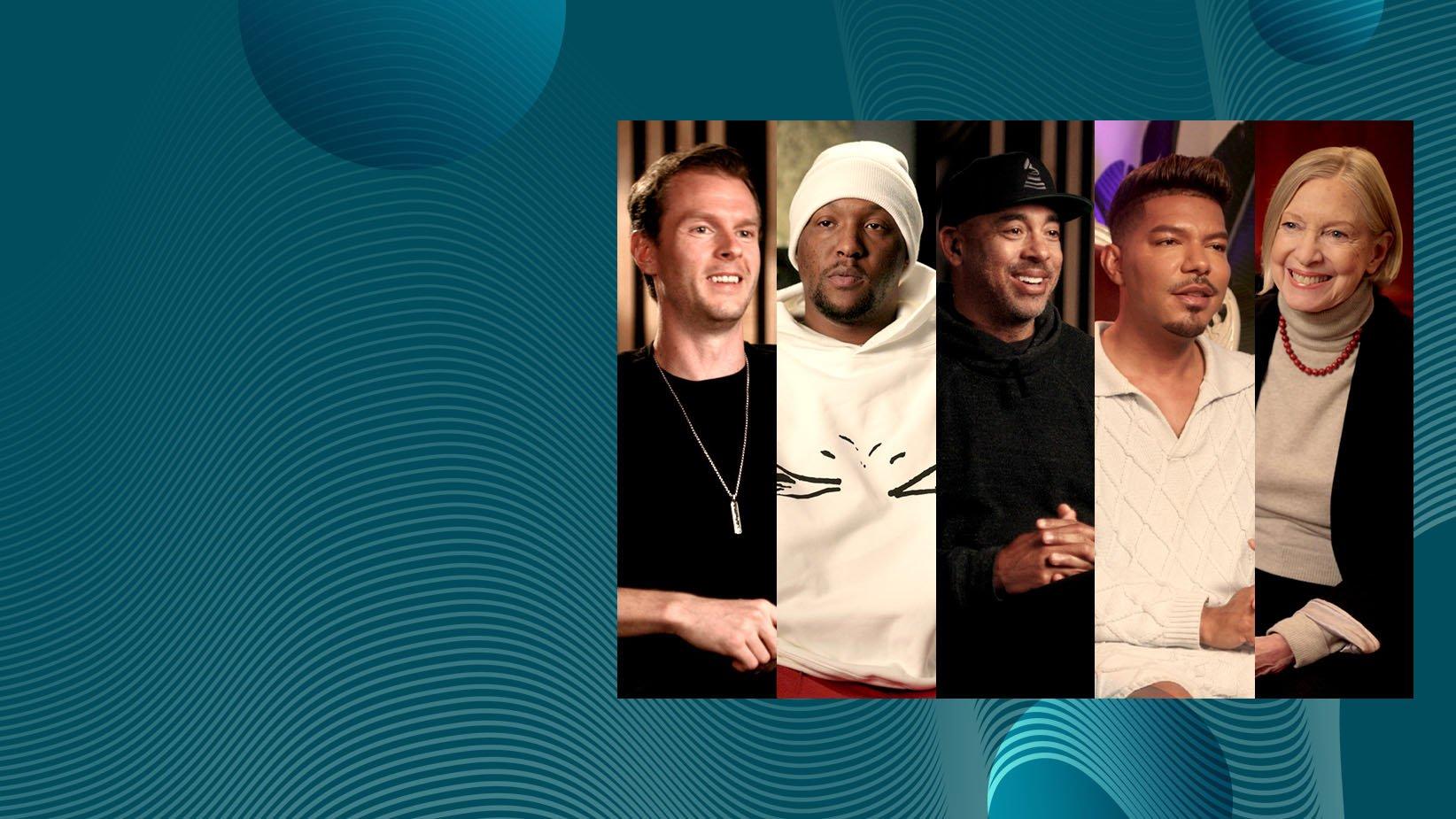
Photos Courtesy of the Recording Academy
news
The New GRAMMY GO Music Production Course Is Now Open: Featuring GRAMMY Winners Hit-Boy, CIRKUT, Judith Sherman & More
Enrollment is now open for GRAMMY GO's new specialization, "Music Production: Crafting Award-Worthy Songs," featuring appearances by GRAMMY winners and nominees. Learn music production and creative strategies from today's industry leaders.
Editor’s Note: Updated to add the Instagram Live video featuring Harvey Mason jr. and Stevie Mackey.
The Recording Academy continues its mission to empower music's next generation with the launch of its second specialization in the GRAMMY GO platform: "Music Production: Crafting Award-Worthy Songs."
This new course, a partnership between the Recording Academy and leading online learning platform Coursera, aims to bolster the technological and audio skills of music producers of all levels. The course, taught by Howard University professor and GRAMMY nominee Carolyn Malachi, features appearances by three-time GRAMMY winner and rap icon Hit-Boy, chart-topping and GRAMMY-winning producer/songwriter CIRKUT, artist and celebrity vocal coach Stevie Mackey, five-time GRAMMY nominee and Recording Academy CEO Harvey Mason jr., and 15-time GRAMMY winner Judith Sherman.
Enrollment for "Music Production: Crafting Award-Worthy Songs" is open now.
Mixing a unique blend of theory and practice, the course teaches music creators of all levels the advanced skills and tools to develop the mindset and confidence of an experienced producer and produce songs of the highest industry standards across all genres. Explore the wide-ranging roles of a music producer, develop critical listening and analysis skills, and master the technical aspects to create music and compositions that cut through the noise. The course's applied learning approach allows learners to sharpen their pre-production skills, utilize Digital Audio Workstations (DAWs) effectively, and produce vocals, instrumentals and samples collaboratively. Through critical listening exercises and discussions, learners will refine their abilities to deliver professional-quality demos.
To celebrate the launch, the Recording Academy hosted an Instagram Live session on Tuesday in which guests Harvey Mason jr. and Stevie Mackey discussed the evolving role of music producers, strategies for working with artists, key elements of top-notch productions, common mixing mistakes, tips for keeping the creative process fresh, and enrollment details for the course.
Building on the success of its first specialization, "Building Your Audience for Music Professionals," GRAMMY GO continues to offer industry-focused education tailored for emerging and established music creators and professionals alike. The innovative platform provides learners with real-time insights from leading music industry figures, ensuring the content remains practical and up to date. GRAMMY GO will also serve as an essential tool in the Recording Academy's global expansion into Africa and the Middle East, empowering music creators through enhanced training, bridging knowledge gaps, and fostering connections within the global music community.
Launched in April in partnership with Coursera, GRAMMY GO is the Recording Academy's first creator-to-creator platform, offering innovative courses tailored for both emerging and established music professionals. The initiative accelerates the Academy's global mission and reinforces its commitment to music education, providing a seamless bridge between all Academy initiatives.
Learn more about GRAMMY GO and the "Music Production: Crafting Award-Worthy Songs" and "Building Your Audience for Music Professionals" specializations.
Watch the Instagram Live session with Harvey Mason jr. and Stevie Mackey in full below:
More Music Education News & Initiatives
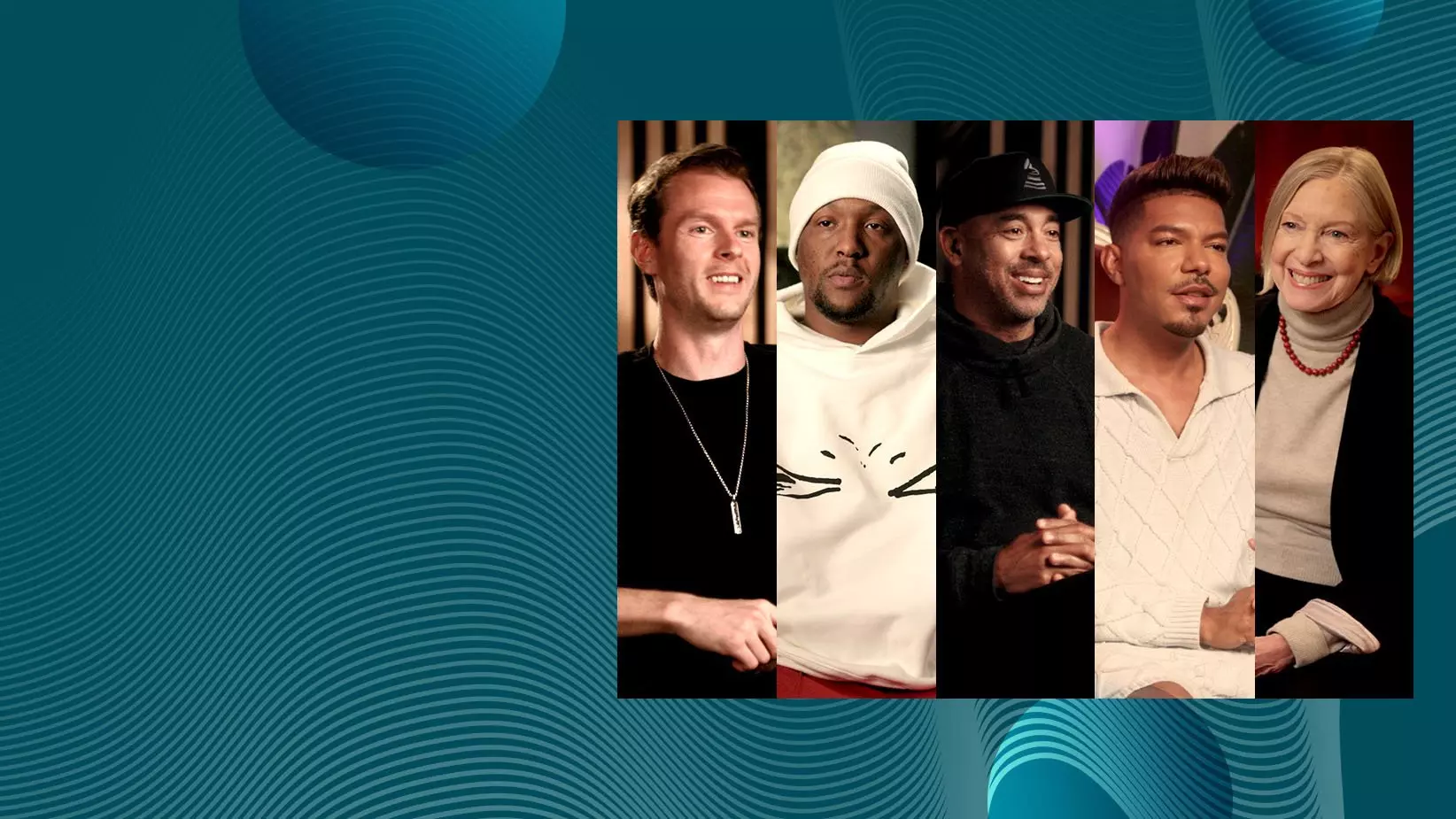
The New GRAMMY GO Music Production Course Is Now Open: Featuring GRAMMY Winners Hit-Boy, CIRKUT, Judith Sherman & More
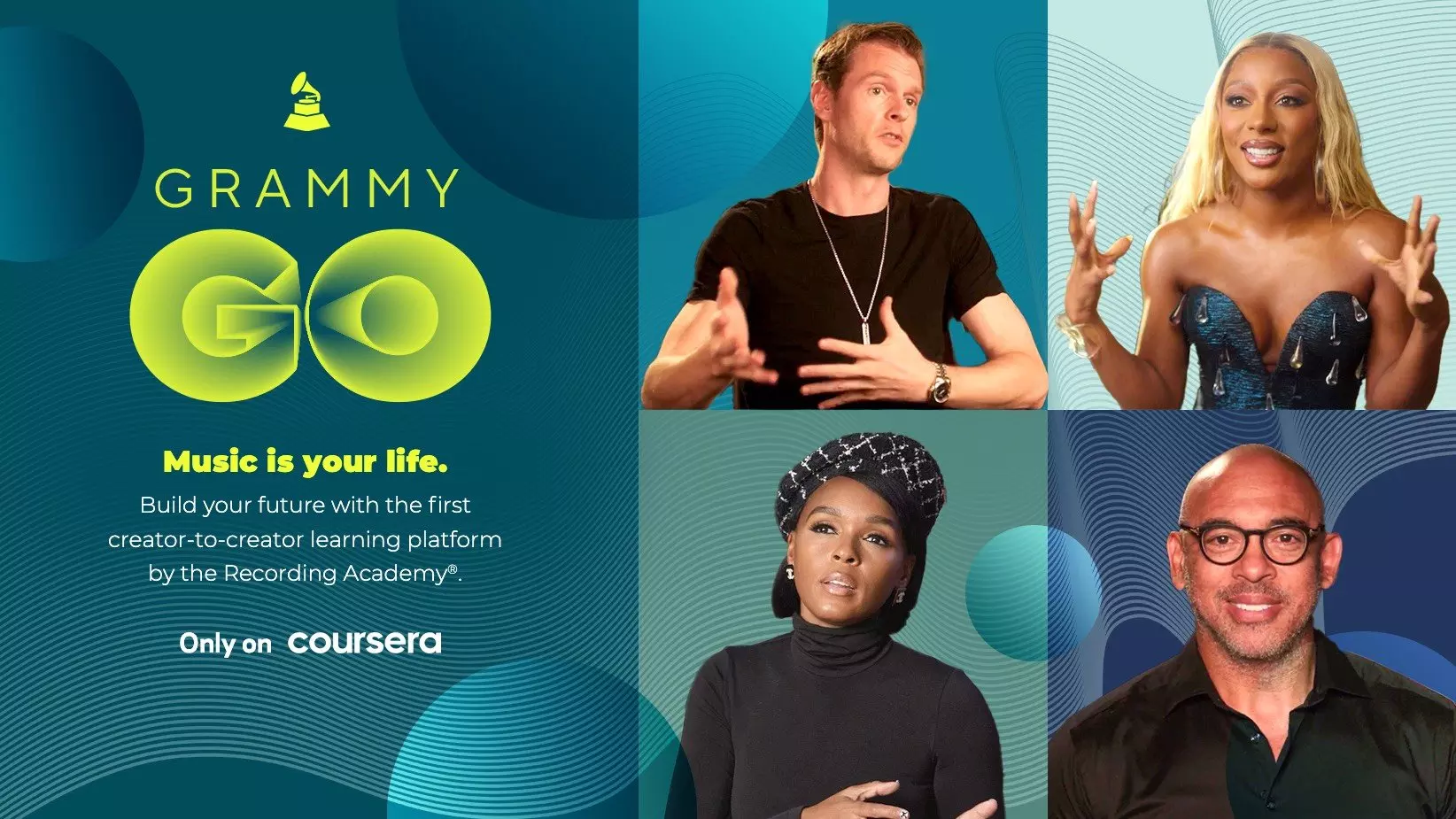
Recording Academy & Coursera Partner To Launch GRAMMY GO Online Learning Initiative
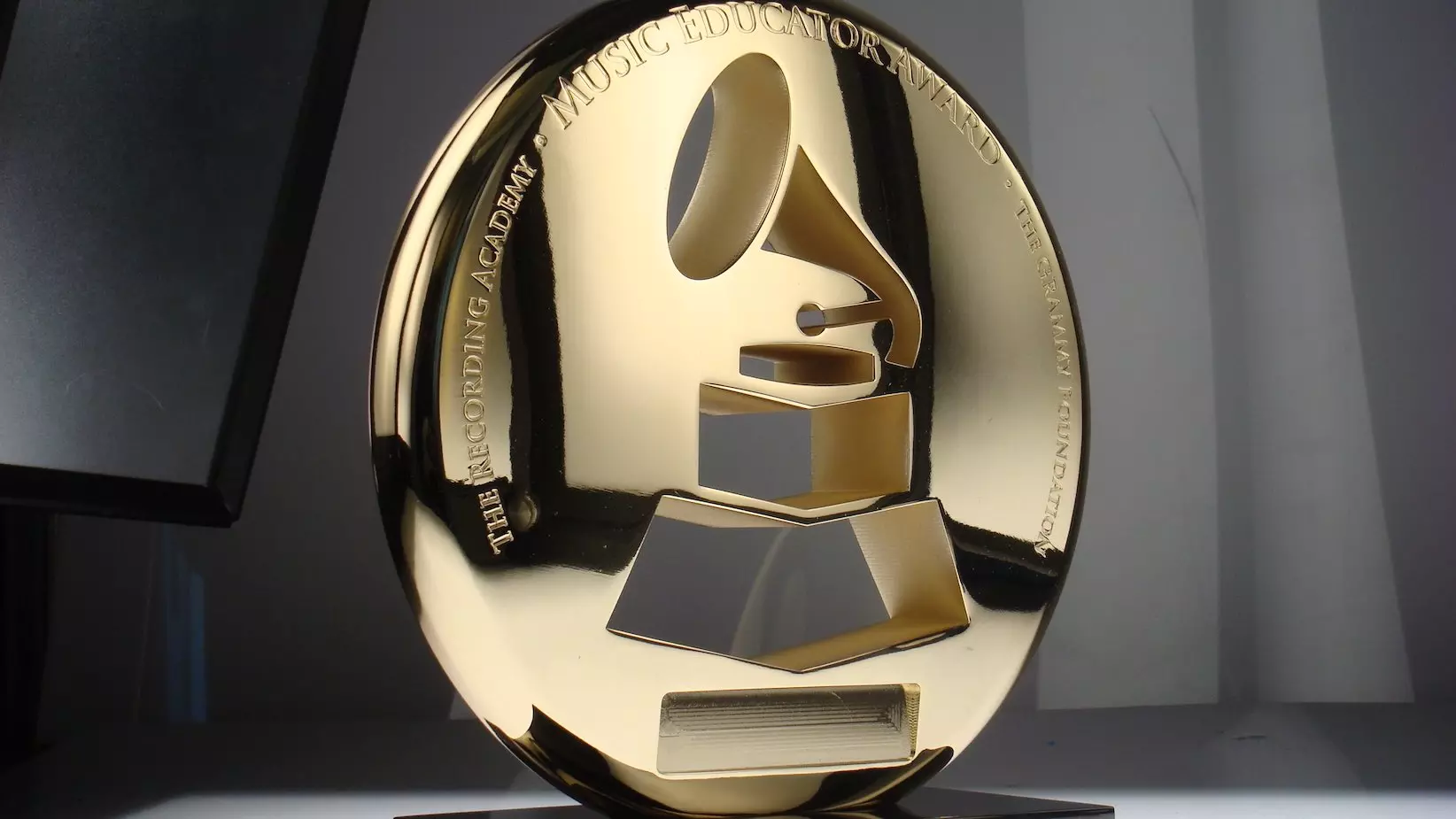
25 Semifinalists Announced For The 2024 Music Educator Award

5 Music Teachers Share The Transformative Power Of Music Education
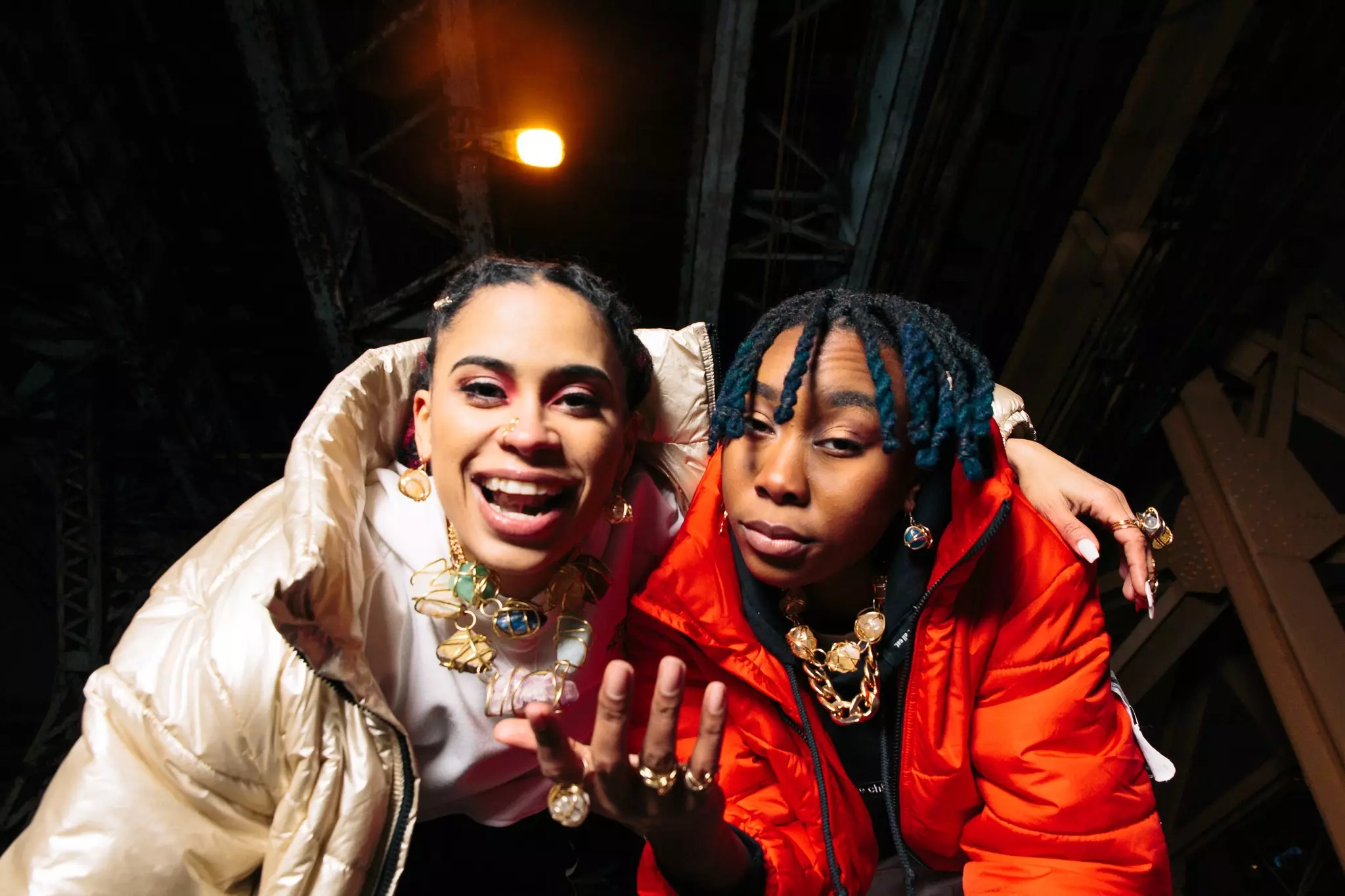
Meet Mother Nature, The Chicago Rap Duo That Teach & Live Self-Expression Through Their Miseducation Of HipHop Youth Workshops
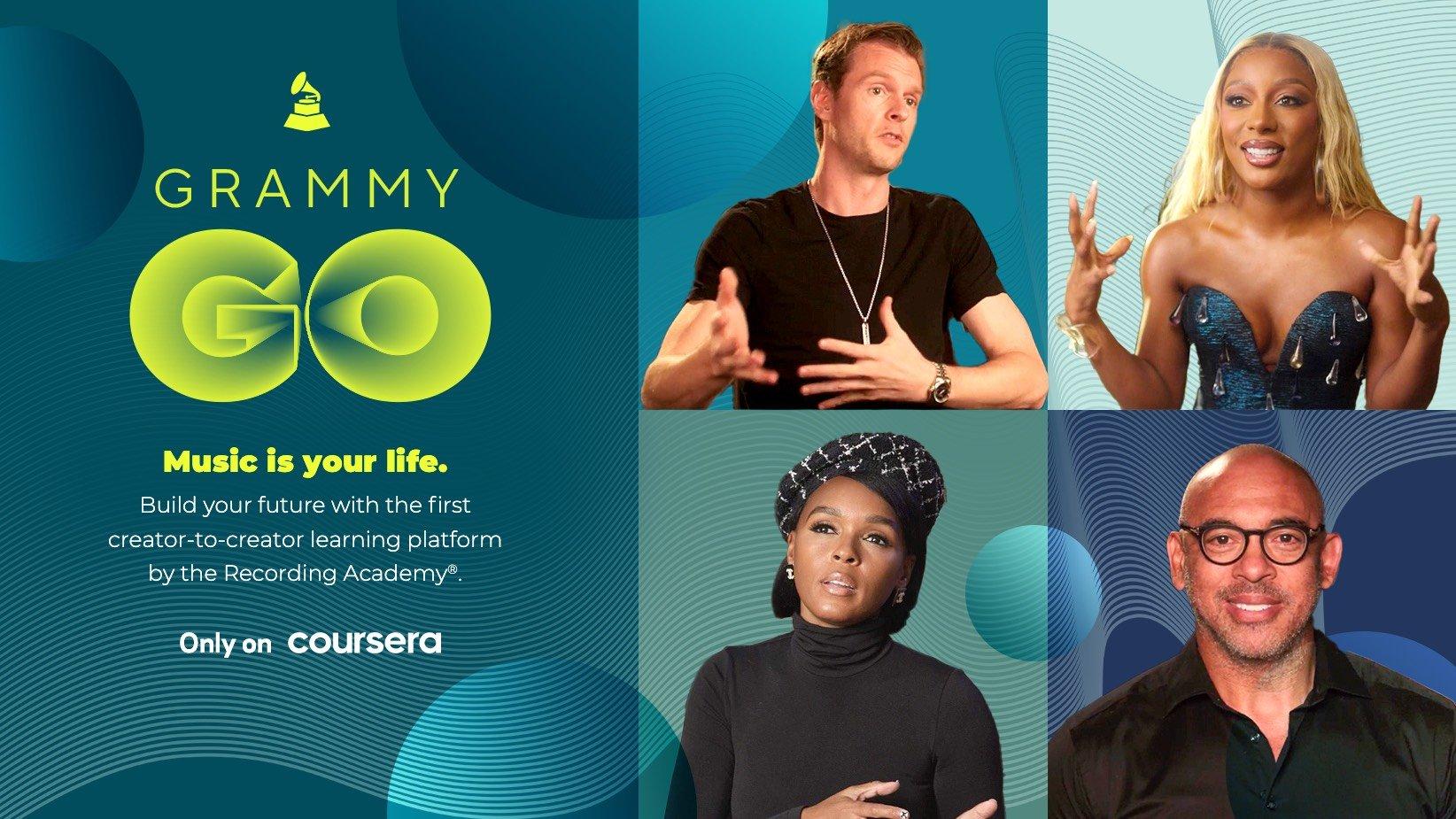
Graphic & Photos Courtesy of GRAMMY GO
news
Recording Academy & Coursera Partner To Launch GRAMMY GO Online Learning Initiative
Class is in session. As part of the Recording Academy's ongoing mission to empower music's next generation, GRAMMY Go offers digital content in specializations geared to help music industry professionals grow at every stage of their career.
The Recording Academy has partnered with leading online learning platform Coursera on GRAMMY GO, a new online initiative to offer classes tailored for music creators and industry professionals.
This partnership empowers the next generation of the music community with practical, up-to-the moment digital content that provides wisdom for both emerging and established members of the industry. Continuing the Academy’s ongoing mission to serve all music people, courses cover a variety of specializations tailored to creative and professional growth.
GRAMMY GO on Coursera includes courses taught by Recording Academy members, featuring GRAMMY winners and nominees and offers real-life lessons learners can put to work right away.
Starting today, enrollment is open for GRAMMY GO’s first Coursera specialization, "Building Your Audience for Music Professionals," taught by Joey Harris, international music/marketing executive and CEO of Joey Harris Inc. The course features Rock & Roll Hall of Fame inductee and five-time GRAMMY winner Jimmy Jam, 10-time GRAMMY nominee Janelle Monáe and three-time GRAMMY winner and the 2024 GRAMMYs Best New Artist Victoria Monét. This foundational specialization will help participants gain the skills, knowledge and confidence to build a strong brand presence and cultivate a devoted audience within the ever-changing music industry.
The partnership’s second course, launching later this summer, aims to strengthen the technological and audio skills of a music producer. "Music Production: Crafting An Award-Worthy Song" will be taught by Carolyn Malachi, Howard University professor and GRAMMY nominee, and will include appearances by GRAMMY winner CIRKUT, three-time GRAMMY winner Hit-Boy, artist and celebrity vocal coach Stevie Mackey, five-time GRAMMY nominee and Recording Academy CEO Harvey Mason jr., and 15-time GRAMMY winner Judith Sherman. Pre-enrollment for "Music Production: Crafting An Award-Worthy Song" opens today.
"Whether it be through a GRAMMY Museum program, GRAMMY Camp or GRAMMY U, the GRAMMY organization is committed to helping music creators flourish, and the Recording Academy is proud to introduce our newest learning platform, GRAMMY GO, in partnership with Coursera," said Panos A. Panay, President of the Recording Academy. "A creator’s growth path is ongoing and these courses have been crafted to provide learners with the essential tools to grow in their professional and creative journeys."
"We are honored to welcome GRAMMY GO, our first entertainment partner, to the Coursera community," said Marni Baker Stein, Chief Content Officer at Coursera. "With these self-paced online specializations, aspiring music professionals all over the world have an incredible opportunity to learn directly from iconic artists and industry experts. Together with GRAMMY GO, we can empower tomorrow's pioneers of the music industry to explore their passion today."
GRAMMY GO also serves as the music community’s newest digital hub for career pathways and editorial content that provides industry insights for members of the industry; visit go.grammy.com for more. For information and enrollment, please visit the landing pages for "Building Your Audience for Music Professionals" and "Music Production: Crafting An Award-Worthy Song."
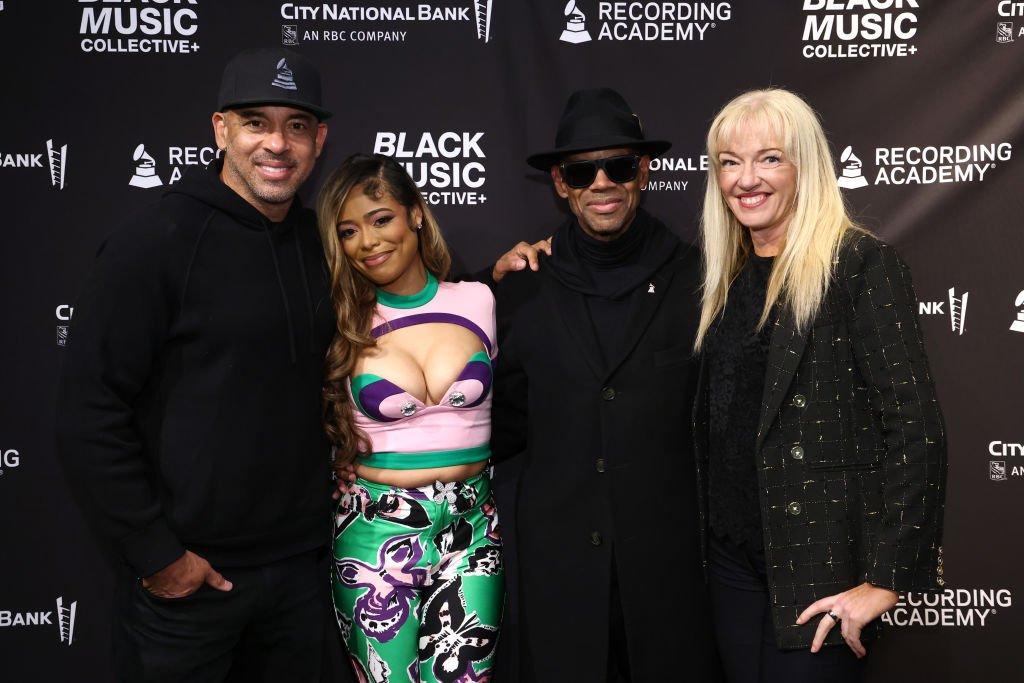
Photo: Tommaso Boddi/Getty Images for The Recording Academy
news
Inside Resonance: Celebrating 50 Years Of Hip-Hop At The GRAMMY Museum
"Nothing resonates more in our everyday lives than hip-hop," Jimmy Jam said during the celebratory event Resonance, which honored the legacy of hip-hop at the GRAMMY Museum.
The Recording Academy is continuing to honor the legacy of hip-hop, to one of the most popular genres of music in America. Held on Dec. 4 at the GRAMMY Museum in downtown Los Angeles, Resonance: Celebrating 50 Years of Hip-Hop was presented by the Academy's Black Music Collective and sponsored by City National Bank.
The Resonance event took over the Museum's fourth floor, which is home to the recently unveiled "Hip Hop America: The Mixtape Exhibit." There, members and leadership from the Academy and BMC, along with musicians and industry professionals, celebrated 50 years of music that has transcended boundaries, inspired advocacy and fostered impactful social change.
Guests were welcomed into the space by an unparalleled collection of artifacts — an ode to the genre through memorabilia and interactive displays showcasing the evolution of hip-hop music and culture. Tupac’s all-white suit — worn in the last video he made — is displayed next to Notorious B.I.G.'s red leather pea jacket worn in the music video for Junior M.A.F.I.A.’s "Players Anthem." The impact of the museum’s intentionally curated collection evokes the extended struggle of the Black experience in America, while celebrating its culture, creativity, and endurance against all odds.
The power of connection and representation was emphasized by five-time GRAMMY winner Jimmy Jam, an R&B songwriter, music producer, and illustrious GRAMMY Museum Board Member. "The idea of 'resonance' struck a chord in me because the mission is unification, amplification and to celebrate Black music. Nothing resonates more in our everyday lives than hip-hop."
A legendary figure who made his mark in the '80s by producing artists such as Janet Jackson, Jimmy Jam and producing partner Terry Lewis, were inducted into the Rock and Roll Hall of Fame in 2022.
"I'm proud to have known my partner Terry Lewis for 50 years. We were raised on hip-hop," he told the crowd. "Hip-hop inspires, it embodies transcendence. Hip-hop advocates and fosters social change, and the cultural significance is astounding."
Jimmy Jam highlighted the integral role of partnerships between the Black Music Collective and sponsor/supporters such as City National Bank and Amazon Music. Such relationships have enabled the third year of the Amazon Music-sponsored Your Future Is Now, a scholarship program.
"We have the opportunity to pour knowledge, resources and many opportunities into the young talent and the young creatives of the future. And that's what we're here to do," he continued.
GRAMMY Museum Board Member and Executive Vice President of City National Bank, Linda Duncombe, who was introduced by Jimmy Jam as "music’s best friend" spoke to the critical work of support.
"We protect and celebrate those who have shared their gift as well as ensure their artistic contributions are accessible for people of all walks of life around the world and for future generations," she said, adding that as a Museum board member, "educating the next generation of artists and teachers is always top of mind. The 'Mixtape Exhibit' really will inspire students to pursue hip hop and the music industry."
Host Lady London, a rapper and songwriter from The Bronx summed up the power of hip-hop and its ability to transcend music. A hyped crowd enthusiastically received her words.
"It's beautiful to see what we have been able to cultivate in such a short amount of time. We are the culture, we have the power to shift the culture and we continue to move mountains," she said. "We are influences in fashion and design and the Black family education, economic empowerment, the arts. We're limitless.
"We have balanced everything and there is nothing that is quite parallel to that," Lady London continued. "I'm so proud to be a part of the culture."
As guests mingled among the exhibits many displays and highlights like original lyric sketches, mixtapes, and an interactive "sonic playground" where guests could interact with recording devices, make 808 beats and record tracks. Academy CEO Harvey Mason Jr. reflected on the culmination of a year celebrating the 50th anniversary of hip-hop.
"Hip hop has been a defining force in our culture and it is so important to be able to honor it in this way" he said. "This is the end of a year that started with us celebrating at our GRAMMY Awards show last season."
Los Angeles' DJ Jadaboo — who has performed for Tommy Hilfiger at New York Fashion Week and a slew of celebrity parties and high profile events — set the vibe all night. Her mix spanned all five decades of the genre and beyond, from R&B to hip hop classics by Jay-Z and Drake, stacking much-sampled songs like Curtis Mayfield’s "Pusher Man" into the set.
As the event carried on, Jimmy Jam’s earlier remarks echoed between the museum’s walls. "Look at what's been done in the last 50 years. You see it all around here," he said. "Now take a look at each other and know all that is happening right now… is because we are the people that are gonna continue to carry this on for another 50 years."
The GRAMMY Museum’s "Hip Hop America: The Mixtape Exhibit" runs through Sept. 4, 2024. "A GRAMMY Salute To 50 Years Of Hip-Hop" will air Sunday, Dec. 10, from 8:30 to 10:30 p.m. ET and 8 to 10 p.m. PT on the CBS Television Network, and stream live and on demand on Paramount+.
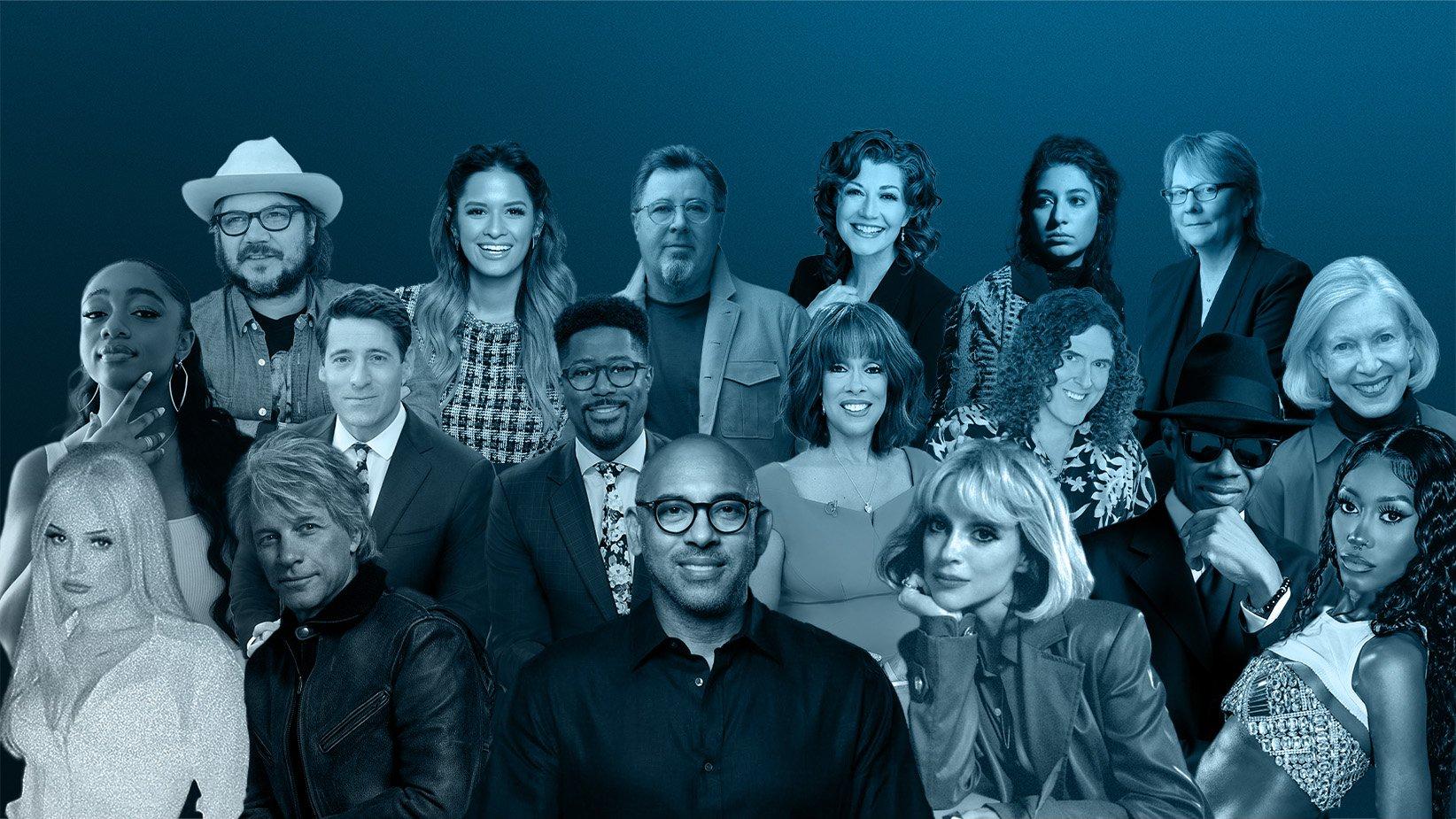
news
How To Watch The 2024 GRAMMY Nominations: St. Vincent, Jeff Tweedy, Muni Long, Kim Petras, Jon Bon Jovi, "Weird Al" Yankovic & More To Announce The Nominees; Streaming Live Friday, Nov. 10
The nominations for the 2024 GRAMMYs will be announced on Friday, Nov 10, starting at 7:45 a.m. PT / 10:45 a.m. ET. Watch it live on live.GRAMMY.com and YouTube.
It's that time again: The 2024 GRAMMYs is just a few months out — airing live Sunday, Feb. 4, from Crypto.com Arena in Los Angeles. Which means nominations for the 2024 GRAMMYs are just around the corner. On Friday, Nov 10, starting at 7:45 a.m. PT / 10:45 a.m. ET, nominations for the 2024 GRAMMYs will be announced via a livestream event airing live on live.GRAMMY.com. The nominations will also stream live on the Recording Academy's YouTube channel.
The 2024 GRAMMYs nominations livestream event will feature a diverse cast of some of the leading voices in music today, including St. Vincent, Jeff Tweedy, Muni Long, Kim Petras, 2024 MusiCares Person Of The Year Jon Bon Jovi, and many others, who will be announcing the 2024 GRAMMY nominees across all 94 categories. Plus, the livestream event will also feature an exclusive GRAMMY Nominations Pre-Show and Wrap-Up Show, which will both feature exclusive videos and conversations about the biggest stories and trends to come out of the 2024 GRAMMYs nominations.
City National Bank is the Official Bank of the GRAMMYs and proud sponsor of the 66th Annual GRAMMY Awards Nominations.
See below for a full guide to the 2024 GRAMMYs nominations livestream event happening next week:
How Can I Watch The 2024 GRAMMY Nominations?
The nominations livestream event will stream live on live.GRAMMY.com and the Recording Academy's YouTube channel.
When Are The 2024 GRAMMY Nominations Announced?
The 2024 GRAMMYs nominations will be announced Friday, Nov 10. The day kicks off with an exclusive GRAMMY Nominations Pre-Show, starting at 7:45 a.m. PT / 10:45 a.m. ET. Hosted by Emmy-winning TV host and “GMA3” contributor Rocsi Diaz, the GRAMMY Nominations Pre-Show will give music fans an inside look at the various initiatives and campaigns that the Recording Academy, the organization behind the annual GRAMMY Awards, supports on a year-long basis on its mission to recognize excellence in the recording arts and sciences and cultivate the well-being of the music community.
Afterward, starting at 8 a.m. PT / 11 a.m. ET, the GRAMMY nominations livestream event begins. The livestream event will begin with a special presentation announcing the nominees in the General Field categories, aka the Big Six, as well as select categories. On live.GRAMMY.com, exclusive videos announcing the nominees across multiple categories will stream as a multi-screen livestream event that users can control, providing a dynamic, expansive online experience for music fans of all genres. The nomination videos will also stream live on YouTube. The full list of 2024 GRAMMYs nominees will then be published on live.GRAMMY.com and GRAMMY.com immediately following the livestream event.
After the nominations are announced, stay tuned for an exclusive GRAMMY Nominations Wrap-Up Show. Co-hosted by "Entertainment Tonight" correspondents Cassie DiLaura and Denny Directo, the Wrap-Up Show will break down all the notable news and top stories from the 2024 GRAMMYs nominations. The GRAMMY Nominations Wrap-Up Show will stream live on live.GRAMMY.com as well as the Recording Academy's YouTube channel, X profile, Twitch channel, TikTok page, Instagram profile, and Facebook page.
Watch the 2024 GRAMMYs nominations livestream event and make sure to use #GRAMMYs to join the conversation on social media as it unfolds live on Friday, Nov. 10.
The schedule for the 2024 GRAMMYs nominations livestream event is as follows:
GRAMMY Nominations Pre-Show
7:45 a.m. PT / 10:45 a.m. ET
Nominations Livestream Event
8 a.m. PT / 11 a.m. ET
Nominations Livestream Event Ends & Full Nominations Revealed
8:25 a.m. PT / 11:25 a.m. ET
GRAMMY Nominations Wrap-Up Show
8:25 a.m. PT / 11:25 a.m. ET
^All times are approximate and subject to change.
Who's Announcing The 2024 GRAMMY Nominations?
Recording Academy CEO Harvey Mason jr. will be joined by GRAMMY winners Arooj Aftab, Vince Gill, Amy Grant, Jimmy Jam, Jon Bon Jovi, Samara Joy, Muni Long, Cheryl Pawelski, Kim Petras, Judith Sherman, St. Vincent, Jeff Tweedy, and "Weird Al" Yankovic, along with "CBS Mornings" co-hosts Gayle King, Nate Burleson, and Tony Dokoupil, to announce all the nominees for the 2024 GRAMMYs.
When Are The 2024 GRAMMYs?
The 2024 GRAMMYs, officially known as the 66th GRAMMY Awards, will air live on Sunday, Feb. 4, at 8-11:30 p.m. ET/5-8:30 p.m. PT from Crypto.com Arena in Los Angeles. Music's Biggest Night will air live on the CBS Television Network and stream on Paramount+.
Mark your calendars now for the 2024 GRAMMY nominations happening Friday, Nov 10.
With additional reporting by Morgan Enos.
2024 GRAMMYs: 4 Things To Know About The New Categories & Changes
